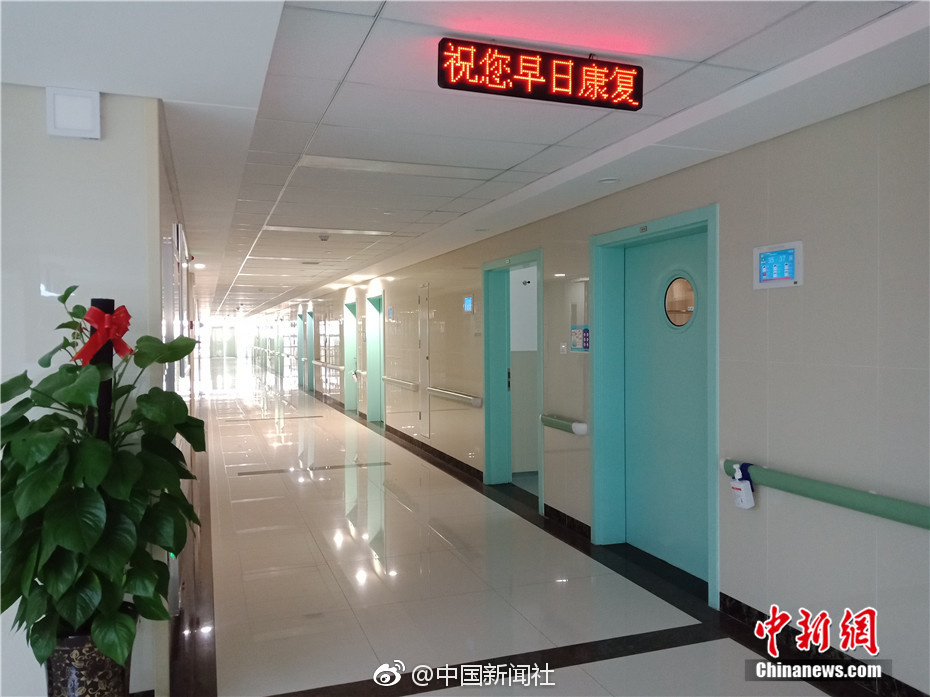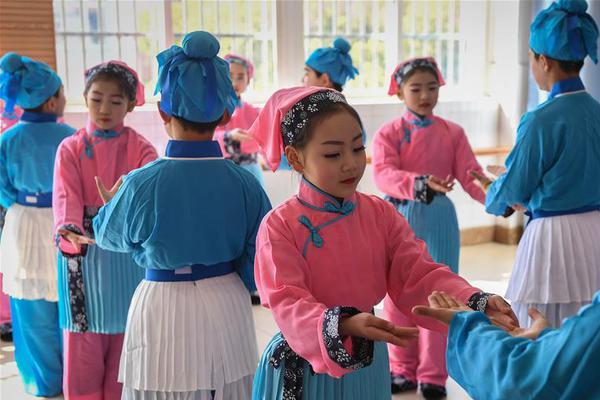
1. The five functions of the operating system are processor management, memory management, device management, file management and job management. Processor management The most basic function of processor management is to process interrupt events. After configuring the operating system, various events can be processed.
2. The main function of the computer operating system is process management, and its work is mainly process scheduling. In the case of a single user and a single taskNext, the processor is only monopolized by one user's task, and the process management work is very simple.
3. Operating System (abbreviation: OS) is a group of interrelated system software programs that supervise and control computer operation, use and run hardware, software resources and provide public services to organize user interaction.
4. Five major management functions of the operating system: (1) Job management: including tasks, interface management, human-computer interaction, graphical interface, voice control and virtual reality, etc. ( 2) File management: also known as information management. ( 3) Storage management: The essence is the management of storage "space", which mainly refers to the management of the main memory.
Any information system has five basic functions, namely: information collection and recording (input); information storage; information processing; information transmission; information output .
According to the functional introduction of the information system, the information system has five basic functions: input, storage, processing, output and control. Different functions have different functions, such as input function: the input function of the information system is determined by the purpose to be achieved by the system, the ability of the system and the permission of the information environment.
Five basic functions of the information system: input, storage, processing, output and control. Input function: The input function of the information system is determined by the purpose to be achieved by the system, the ability of the system and the permission of the information environment.Storage function: Storage function refers to the ability of the system to store various information and data. Mainly including: statistical functions.
The operating system has five functions: processor management: mainly controls and manages the work of the CPU. Storage management: mainly allocate and manage memory. Device management: mainly manage basic input and output devices. File management: responsible for the organization, storage, operation and protection of computer files.
The functions of the computer operating system include: processor management, memory management, device management, file management, job management and other functional modules. Processor management. The most basic function of processor management is to handle interrupt events. The processor can only detect interrupt events and generate interrupts and cannot process them.
The main function of the computer operating system is process management, and its main work is process scheduling. In the case of a single user and a single task, the processor is only monopolized by one user's task, and the work of process management is very simple.
The main functions of the operating system are process and processor management, job management, storage management, device management and file management, as follows: process and processor management. Because the execution of the program must rely on the processor, only one program flow can be processed and executed at any time. Homework management.
I) Processor management The most basic function of processor management is to handle interrupt events. The processor can only detect interrupt events and generate interrupts, and cannot handle these interrupt events. After configuring the operating system, all types of events can be handled.Another function of processor management is processor scheduling.
Five management functions of the operating system: job management: including tasks, interface management, human-computer interaction, graphical interface, voice control and virtual reality, etc. File management: also known as information management. Storage management: The essence is the management of storage "space", which mainly refers to the management of the main memory.

The storage management function of the operating system is to manage memory resources. It mainly realizes memory allocation and recovery, storage protection and memory expansion. The device management of the device management operating system is responsible for allocating and recycling external devices, and controlling external devices to operate according to the requirements of user programs.
The functions of the computer operating system include: processor management, memory management, device management, file management, job management and other functional modules. Processor management. The most basic function of processor management is to handle interrupt events. The processor can only detect interrupt events and generate interrupts and cannot process them.
The five functions of the operating system are processor management, memory management, device management, file management and job management.Processor management The most basic function of processor management is to process interrupt events. After configuring the operating system, various events can be processed.
TNT Sports-APP, download it now, new users will receive a novice gift pack.
1. The five functions of the operating system are processor management, memory management, device management, file management and job management. Processor management The most basic function of processor management is to process interrupt events. After configuring the operating system, various events can be processed.
2. The main function of the computer operating system is process management, and its work is mainly process scheduling. In the case of a single user and a single taskNext, the processor is only monopolized by one user's task, and the process management work is very simple.
3. Operating System (abbreviation: OS) is a group of interrelated system software programs that supervise and control computer operation, use and run hardware, software resources and provide public services to organize user interaction.
4. Five major management functions of the operating system: (1) Job management: including tasks, interface management, human-computer interaction, graphical interface, voice control and virtual reality, etc. ( 2) File management: also known as information management. ( 3) Storage management: The essence is the management of storage "space", which mainly refers to the management of the main memory.
Any information system has five basic functions, namely: information collection and recording (input); information storage; information processing; information transmission; information output .
According to the functional introduction of the information system, the information system has five basic functions: input, storage, processing, output and control. Different functions have different functions, such as input function: the input function of the information system is determined by the purpose to be achieved by the system, the ability of the system and the permission of the information environment.
Five basic functions of the information system: input, storage, processing, output and control. Input function: The input function of the information system is determined by the purpose to be achieved by the system, the ability of the system and the permission of the information environment.Storage function: Storage function refers to the ability of the system to store various information and data. Mainly including: statistical functions.
The operating system has five functions: processor management: mainly controls and manages the work of the CPU. Storage management: mainly allocate and manage memory. Device management: mainly manage basic input and output devices. File management: responsible for the organization, storage, operation and protection of computer files.
The functions of the computer operating system include: processor management, memory management, device management, file management, job management and other functional modules. Processor management. The most basic function of processor management is to handle interrupt events. The processor can only detect interrupt events and generate interrupts and cannot process them.
The main function of the computer operating system is process management, and its main work is process scheduling. In the case of a single user and a single task, the processor is only monopolized by one user's task, and the work of process management is very simple.
The main functions of the operating system are process and processor management, job management, storage management, device management and file management, as follows: process and processor management. Because the execution of the program must rely on the processor, only one program flow can be processed and executed at any time. Homework management.
I) Processor management The most basic function of processor management is to handle interrupt events. The processor can only detect interrupt events and generate interrupts, and cannot handle these interrupt events. After configuring the operating system, all types of events can be handled.Another function of processor management is processor scheduling.
Five management functions of the operating system: job management: including tasks, interface management, human-computer interaction, graphical interface, voice control and virtual reality, etc. File management: also known as information management. Storage management: The essence is the management of storage "space", which mainly refers to the management of the main memory.

The storage management function of the operating system is to manage memory resources. It mainly realizes memory allocation and recovery, storage protection and memory expansion. The device management of the device management operating system is responsible for allocating and recycling external devices, and controlling external devices to operate according to the requirements of user programs.
The functions of the computer operating system include: processor management, memory management, device management, file management, job management and other functional modules. Processor management. The most basic function of processor management is to handle interrupt events. The processor can only detect interrupt events and generate interrupts and cannot process them.
The five functions of the operating system are processor management, memory management, device management, file management and job management.Processor management The most basic function of processor management is to process interrupt events. After configuring the operating system, various events can be processed.
100 free bonus casino no deposit GCash
author: 2025-01-09 17:51100 free bonus casino no deposit GCash
author: 2025-01-09 16:08UEFA Champions League live streaming app
author: 2025-01-09 17:38Hearthstone arena deck Builder
author: 2025-01-09 17:24 Casino redeem
Casino redeem
478.64MB
Check UEFA Champions League live streaming free
UEFA Champions League live streaming free
261.74MB
Check UEFA EURO
UEFA EURO
787.69MB
Check UEFA Champions League
UEFA Champions League
614.89MB
Check UEFA TV
UEFA TV
479.62MB
Check Casino Plus
Casino Plus
292.35MB
Check Walletinvestor digi plus
Walletinvestor digi plus
634.81MB
Check UEFA Champions League live streaming free
UEFA Champions League live streaming free
564.11MB
Check PAGCOR online casino free 100
PAGCOR online casino free 100
578.88MB
Check Hearthstone Wild Decks
Hearthstone Wild Decks
331.94MB
Check UEFA Europa League
UEFA Europa League
761.88MB
Check Hearthstone Arena class tier list 2024
Hearthstone Arena class tier list 2024
236.19MB
Check UEFA Champions League live
UEFA Champions League live
683.78MB
Check Hearthstone arena
Hearthstone arena
361.91MB
Check App to watch Champions League live free
App to watch Champions League live free
791.69MB
Check Casino Plus app
Casino Plus app
724.63MB
Check UEFA live free
UEFA live free
726.82MB
Check Bingo Plus
Bingo Plus
343.88MB
Check UEFA Champions League standings
UEFA Champions League standings
465.98MB
Check European Cup live
European Cup live
886.83MB
Check Hearthstone arena
Hearthstone arena
575.12MB
Check Casino Plus free 100
Casino Plus free 100
188.55MB
Check PAGCOR online casino free 100
PAGCOR online casino free 100
888.75MB
Check European Cup live
European Cup live
711.86MB
Check Casino Plus app
Casino Plus app
855.87MB
Check Hearthstone Wild Decks
Hearthstone Wild Decks
594.92MB
Check Hearthstone Arena class tier list 2024
Hearthstone Arena class tier list 2024
378.39MB
Check UEFA TV
UEFA TV
192.64MB
Check Champions League
Champions League
998.41MB
Check UEFA Champions League live streaming app
UEFA Champions League live streaming app
844.57MB
Check Hearthstone Wild Decks
Hearthstone Wild Decks
145.14MB
Check App to watch Champions League live free
App to watch Champions League live free
468.79MB
Check bingo plus update today
bingo plus update today
654.89MB
Check Arena plus APK
Arena plus APK
667.16MB
Check Arena plus APK
Arena plus APK
534.35MB
Check Hearthstone Arena win rate
Hearthstone Arena win rate
893.82MB
Check
Scan to install
TNT Sports to discover more
Netizen comments More
1164 Casino Plus
2025-01-09 18:28 recommend
646 Casino free 100 no deposit
2025-01-09 17:59 recommend
920 Arena Plus login
2025-01-09 17:46 recommend
675 Hearthstone Arena win rate
2025-01-09 17:22 recommend
675 Hearthstone Arena class tier list 2024
2025-01-09 16:28 recommend